They Stole 9 Years of My Life': Framed in 2006 Mumbai Blasts, Wahid Shaikh Demands Rs 9 Crore for Wrongful Jail
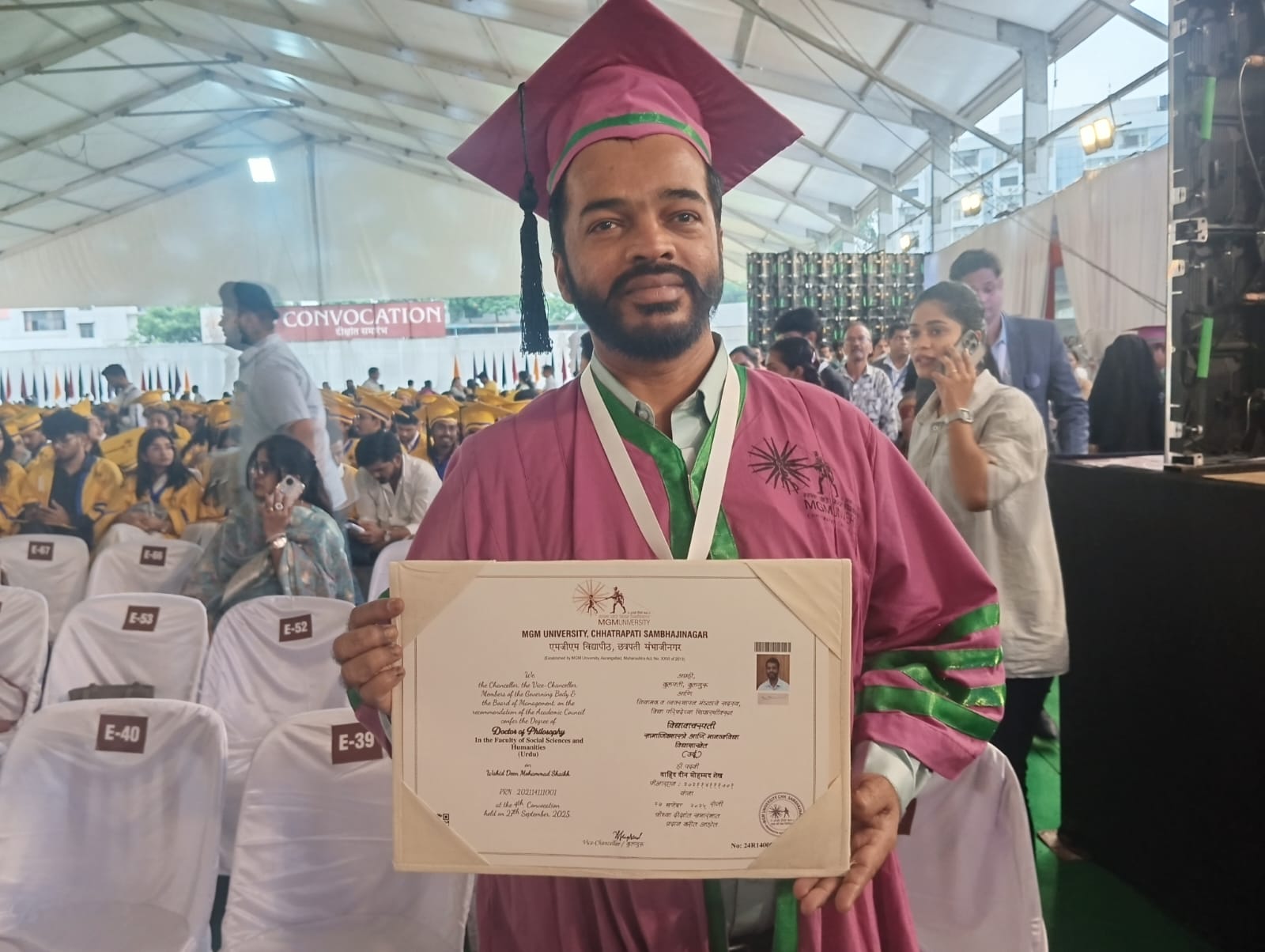
Nikhat Fatima, TwoCircles.net
Wahid Shaikh, one of the 13 men accused in the 2006 Mumbai train blasts that killed 188 people and injured hundreds, was arrested by Maharashtra’s Anti-Terror Squad (ATS) for allegedly plotting the conspiracy.
After nine long years in prison, he was acquitted and proven innocent in 2015.
Life never returned to what it once was. Though he tried to pick up from where he had left off, the scars remained. And now, a decade after his acquittal, the remaining 12 accused too have been cleared of all charges.
Wahid, who has since dedicated his life to helping others falsely implicated like him, is now demanding compensation of Rs 9 crores from the state.
“I waited this long to demand compensation because I wanted all the others arrested with me in 2006 to also be proven innocent. Only then could I feel entitled to claim it,” he says.
The figure may sound large, but he insists it cannot buy back the years he lost in the prime of his youth. It cannot erase the humiliation, the torture, the stigma or the trauma that still lives within him.
“This compensation will not restore my life, but it will at least be an acknowledgment from the state that an innocent man was wrongfully incarcerated. And maybe, it will serve as a deterrent for the future,” he explains.
[caption id="attachment_452652" align="aligncenter" width="1600"]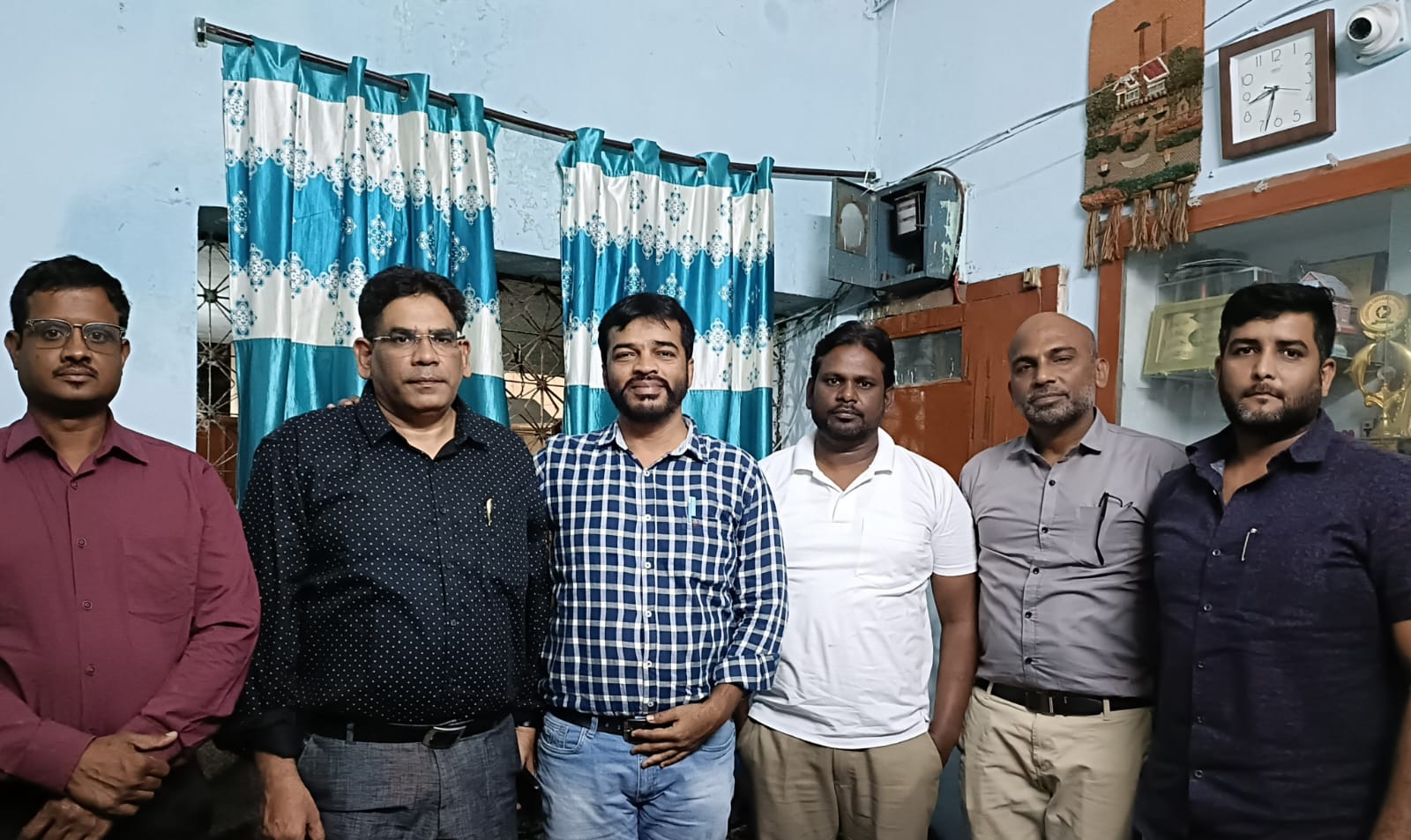 Abdul Wahid Shaikh with activists in Hyderabad[/caption]
Abdul Wahid Shaikh with activists in Hyderabad[/caption]
Days in prison
Wahid recalls that his first arrest came when he was only 21, accused of being part of the banned Students Islamic Movement of India (SIMI). He was jailed for two months before being released.
When a series of seven bomb blasts took place on July 11, 2006 over a period of 11 minutes on the Suburban Railway in Mumbai the train blasts took place, he says the police found him an easy target.
He was picked up again and named among 30 suspects. While the police claimed that some were Pakistanis, 13 of them, including him, were Indian. They all were lodged in Arthur Road Jail.
“They tortured me with third-degree methods, called me a terrorist, a Pakistani and a member of Lashkar-e-Taiba. They did everything to force a confession to a crime I had never committed,” he says.
When the court sentenced seven to life and five to death, Wahid says he felt utterly destroyed. “From the prison gate to the cell, we were beaten, humiliated, not only by the police but even by the inmates,” he says.
The alleged hostility eased with time. But prison offered no real comfort. “In jail, nothing gives solace. Most prisoners turn to God. I too began offering namaz regularly, pouring out my heart to Allah. That gave me strength to survive,” he recalls.
Letters from home and the photograph of his six-month-old daughter became his other lifelines.
[caption id="attachment_452650" align="aligncenter" width="867"]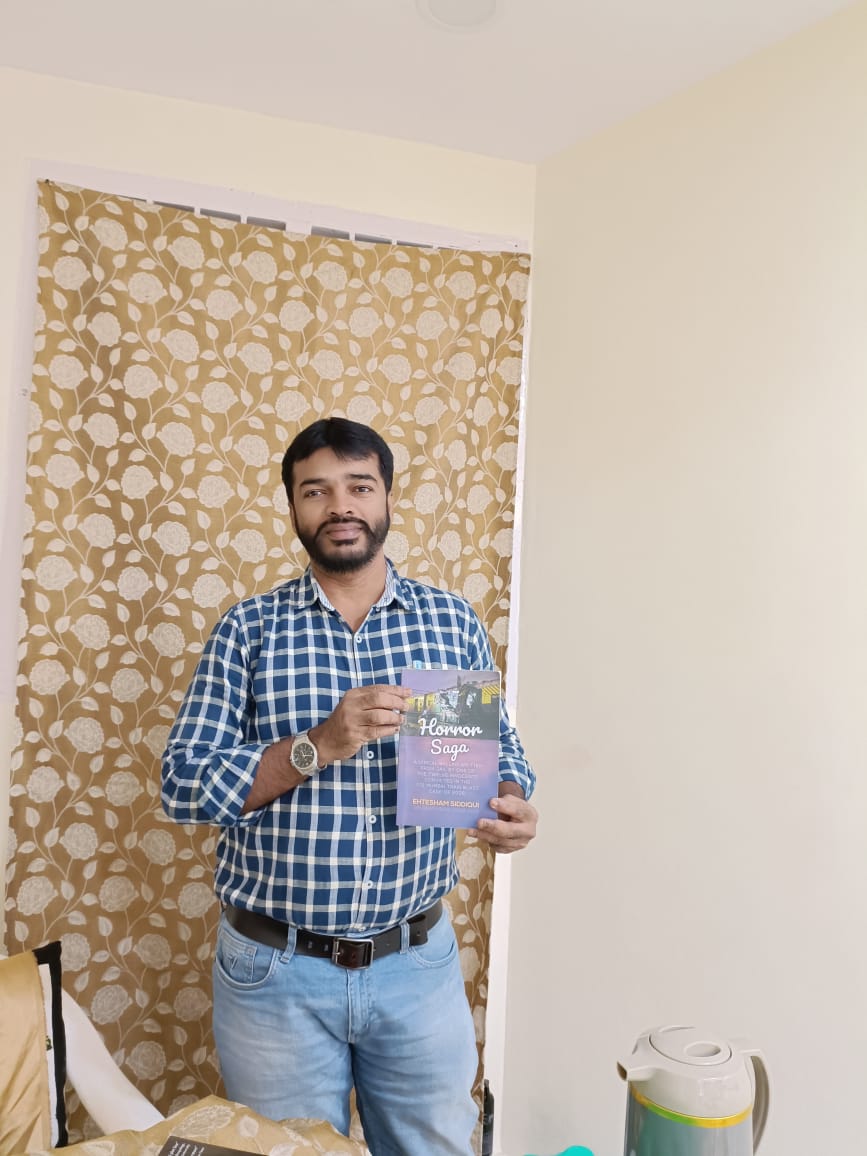 Abdul Wahid Shaikh with ' Horror Saga' a book written from prison by Ehtesham siddiqui, also one of the accused in 2006[/caption]
Abdul Wahid Shaikh with ' Horror Saga' a book written from prison by Ehtesham siddiqui, also one of the accused in 2006[/caption]
The killing of Shahid Azmi
Wahid remembers with deep respect human rights lawyer Shahid Azmi, who defended them tirelessly. “He was not only our lawyer, but he was also our source of strength. He motivated and encouraged me to study further,” he says.
Guided by Azmi, Wahid completed his MA in Urdu, later pursued LLB and a course in journalism.
“When Shahid Azmi was assassinated in 2010, we lost all hope. Everything turned dark,” he says.
Support then came from Jamiat Ulema-e-Hind, a Muslim civil rights group, and in 2015 he was finally acquitted.
But freedom had already claimed too much. His father died of shock, his mother’s mental health collapsed and his wife and family bore stigma of being linked to an accused “terrorist". He himself still suffers from glaucoma, chronic pain and psychological trauma allegedly caused by "brutal torture" and "electric shocks" in jail.
[caption id="attachment_452651" align="aligncenter" width="867"]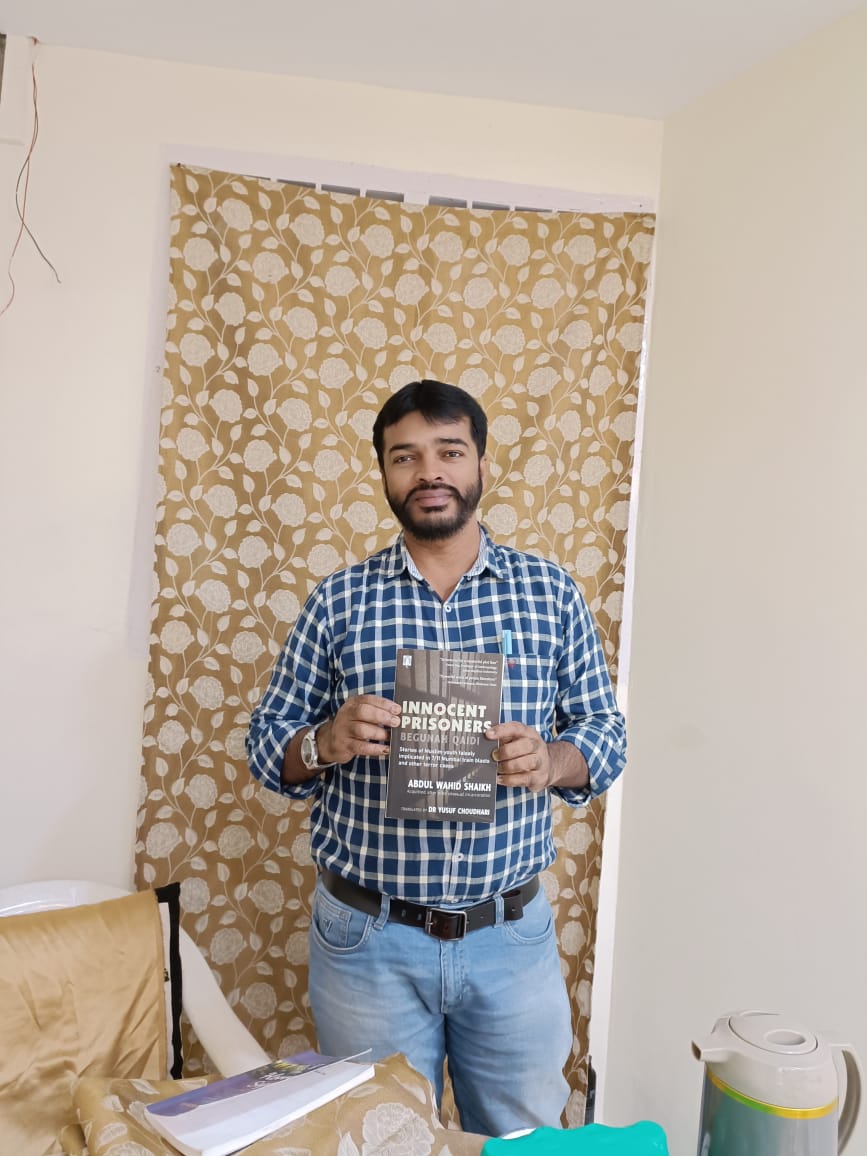 Abdul Wahid Shaikh with his book 'Innocent Prisoner', in Hyderabad[/caption]
Abdul Wahid Shaikh with his book 'Innocent Prisoner', in Hyderabad[/caption]
A second life
“God has been kind to me. The school where I taught Urdu took me back despite the stigma. They trusted me,” he says.
He returned to teaching, his lifelong passion, and also published his prison memoir titled 'Begunah Qaidi' (Innocent Prisoner), which he had written in 10 months behind bars and released after his acquittal. The book has since been translated into Hindi and English.
He went on to complete his PhD on the history of Indian prisons and set up Innocence Network, a collective of lawyers, activists and retired judges working to help the wrongfully imprisoned.
“We submit memorandums, hold campaigns and raise awareness, especially among Muslim youth, about what to do if they are falsely arrested. My book itself is a roadmap. It explains how the police force prisoners into signing false confessions,” he claims.
Networking for justice
Today, Wahid travels across states, speaking at public meetings, book launches and conferences. He shares his story not only to recount his suffering, but to amplify the voices of other undertrials.
“In prison, you forget what freedom feels like. But one hope that your family is waiting outside and that someone is fighting for your innocence always keeps you alive. That thought keeps us going,” he says.
He now speaks for political prisoners from the anti-CAA-NRC protests, the Bhima Koregaon case and many more. Through his YouTube channel, Begunah Qaidi, he documents alleged systemic injustices where "innocent Muslim youth are targeted and jailed".
In 2022, filmmaker Sudhanshu Gamare even brought his story to the screen in Haemolymph: Invisible Blood.
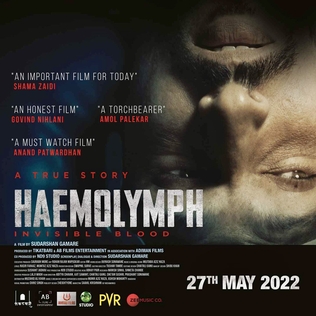
Wahid continues to write, with several books in the pipeline. He is compiling poetry, letters, stories and reflections written from prison. "This was inspired by Faiz Ahmed Faiz, who wrote timeless poetry from jail,” he explains.
His forthcoming works include 'Wahid Shaikh vs State', his autobiography; 'Love Letters from Jail', a collection of letters exchanged with his wife during his nine years in prison; and a collaborative project with journalist Manisha Bhalla documenting the stories of the other 12 men acquitted alongside him.
One of them, however, did not live to see his innocence declared.
Despite his literary pursuits, he remains grounded in community work. “On an average, I get 20-30 calls a day for legal guidance. I have become like a mobile legal advisor,” he laughs.
Still, the past never truly leaves him. “Every knock at the door and every sight of a policeman on the street takes me back. I wake up sweating at night, remembering the torture," he says.
“Despite the fear, I have to move ahead. Forgetting nine years in prison is impossible. What pains me most is that even after the judgment declaring us innocent, the state appealed against it instead of admitting its mistake. This is how innocent youth are turned into ‘terrorists’ by the system,” he alleged.
And so, Wahid stands firm. “If my claim for Rs 9 crores is not accepted, we will go to court,” he says with a resolve.
